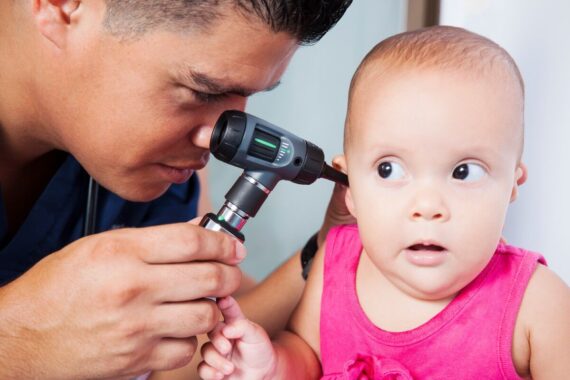Over 10,000 pharmacies have begun to consult patients with seven common conditions today, as part of a Government bid to relieve GP pressure.
Community pharmacies in England are now able to supply treatment – including antibiotics where clinically appropriate – for sinusitis, sore throat, earache, infected insect bite, impetigo, shingles, and uncomplicated urinary tract infections in women, under a nationally-commissioned patient group direction (PGD).
In all, 10,265 community pharmacies are offering the service, while NHS England said 5,367 have now also signed up to offer the NHS Pharmacy Contraception Service which launched last year. A wider marketing campaign to raise awareness of Pharmacy First will launch in mid-February, NHS England has added.
But some pharmacies may not be offering consultations or treatment for otitis media (earache) until 1 April as NHSE allowed them to delay that part of the service if they had ordered otoscope equipment that had not yet arrived.
Prime Minister Rishi Sunak welcomed the launch, adding that with Pharmacy First the Government was ‘determined to go further’ and unlock the ‘full potential’ of community pharmacies to deliver routine care.
And NHS England (NHSE) chief executive Amanda Pritchard described the service as ‘great news for patients’, adding that it was ‘part of major transformation in the way the NHS delivers care, with the health service determined to giving people more choice in how they can access treatment’.
She said: ‘GPs are already treating millions more people every month than before the pandemic, but with an ageing population and growing demand, we know the NHS needs to give people more choice and make accessing care as easy as possible.
‘People across England rightly value the support they receive from their high street pharmacist, and with eight in 10 living within a 20-minute walk of a pharmacy and twice as many pharmacies in areas of deprivation, they are the perfect spot to offer people convenient care for common conditions.’
Dr Claire Fuller, a GP and NHS England’s medical director for primary care, welcomed the service as ‘a wonderful move to increase accessibility to healthcare for patients’.
She also said the service would ‘relieve pressure on our hard-working GPs, freeing up millions of appointments for those who need them the most’.
Louise Ansari, chief executive of patient advocacy group Healthwatch England, welcomed the service, but suggested that it would ‘take time for pharmacists to get trained and ready for change’.
And she added: ‘Patients and GP services need up to date information on which of their local pharmacies are offering direct supply of medicines for one, some, or all seven of the new conditions.
‘Investment in a national campaign to raise awareness of the new services and build trust in pharmacists will also be essential and, crucially, this will need to reach all communities to be effective.’
Community pharmacy IT systems will automatically send details of patient consultations to general practice clinical IT systems via GP Connect. But GPs have raised concerns around unintended workload consequences from having to check these updates.
Pharmacy leaders have also called for community pharmacy to take an expanded role in the management of conditions such as diabetes and cardiovascular disease, as well as women’s health. But the Government currently has ‘no plans’ to add to the seven common conditions covered by Pharmacy First.
A version of this article was first published by Pulse’s sister title The Pharmacist


















READERS' COMMENTS [6]
Please note, only GPs are permitted to add comments to articles
Why is NHS wasting money on duplicating supply of otoscope equipment that is readily available at GP surgeries, who can additionally use it for other problems, like eye conditions?
Did anybody in the Finance department think of that?
Or does it not matter, so long as you can deduct it from GP funding to balance the budget?
Wait for the ‘U’ turn
What training and expertise do these pharmacists have in this, especially otoscopy ? You need to know what is normal (by seeing at least 100 if not more) before you can identify abnormal. Are we reassured this is safe, Will they have appropriate indemnity? Or will they now take the money and refer them all to GP urgently to be seen on the day as they don’t have a clue? This all really concerns me and is unlikely to help my workload, especially when I am on duty.
Will be interesting to see what happens to antibiotic prescribing rates.
GP workload will at best only be transiently reduced, as unrestricted demand inevitably rises to capacity and beyond.
General practice needs more GPs, more funding and government to recognise that listening to zealots or sycophants will only lead into expensive cul de sacs
TM looks a bit pink? Best bang them some amoxicillin
Cough is a bit chesty? Time for some more amoxicillin, can’t be too careful
Sinusitis? Oof better get some amoxicillin down you
20 year history of incontinence? It could be sepsis! Or a UTI? Nitrofurantoin for you!